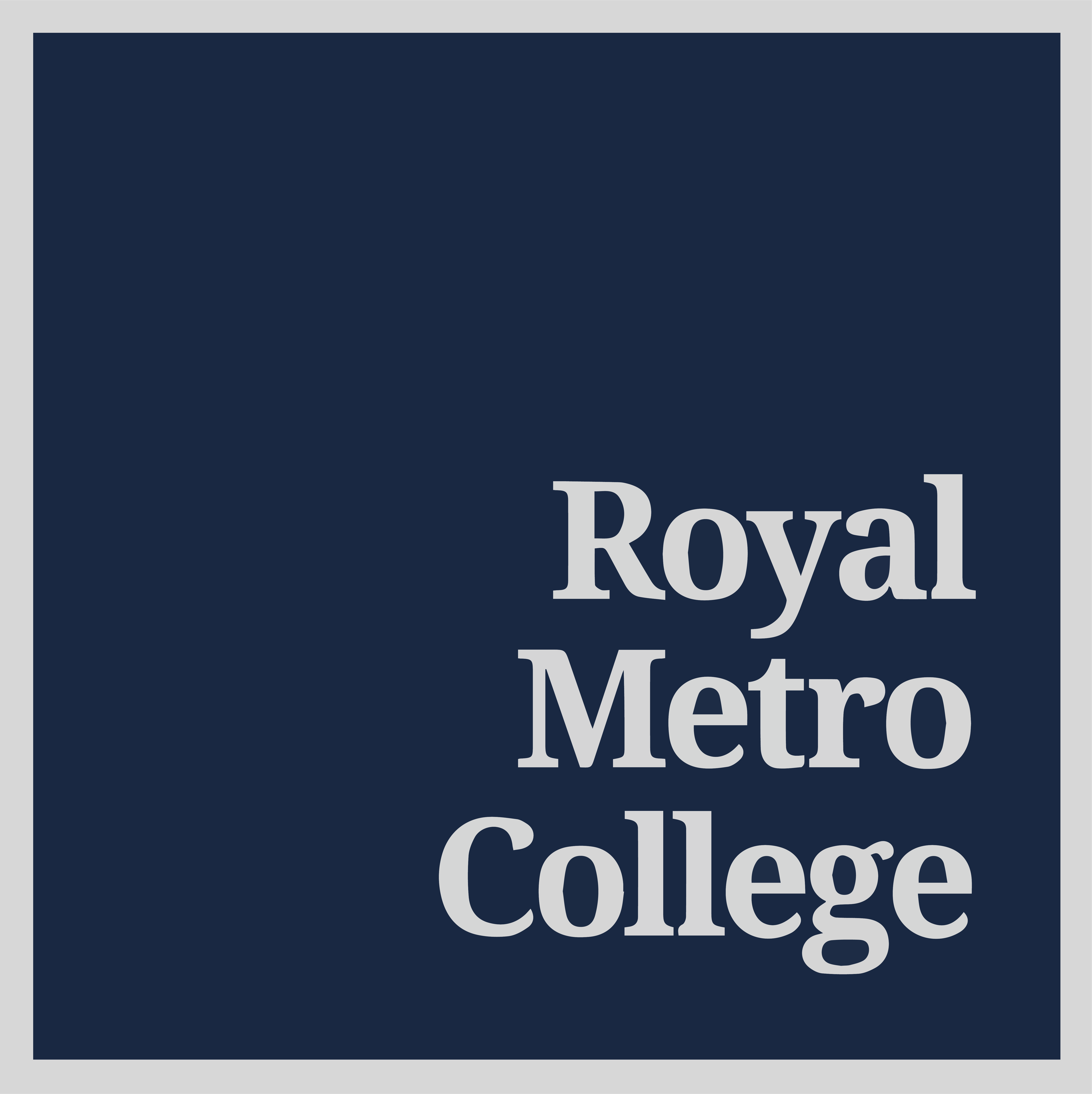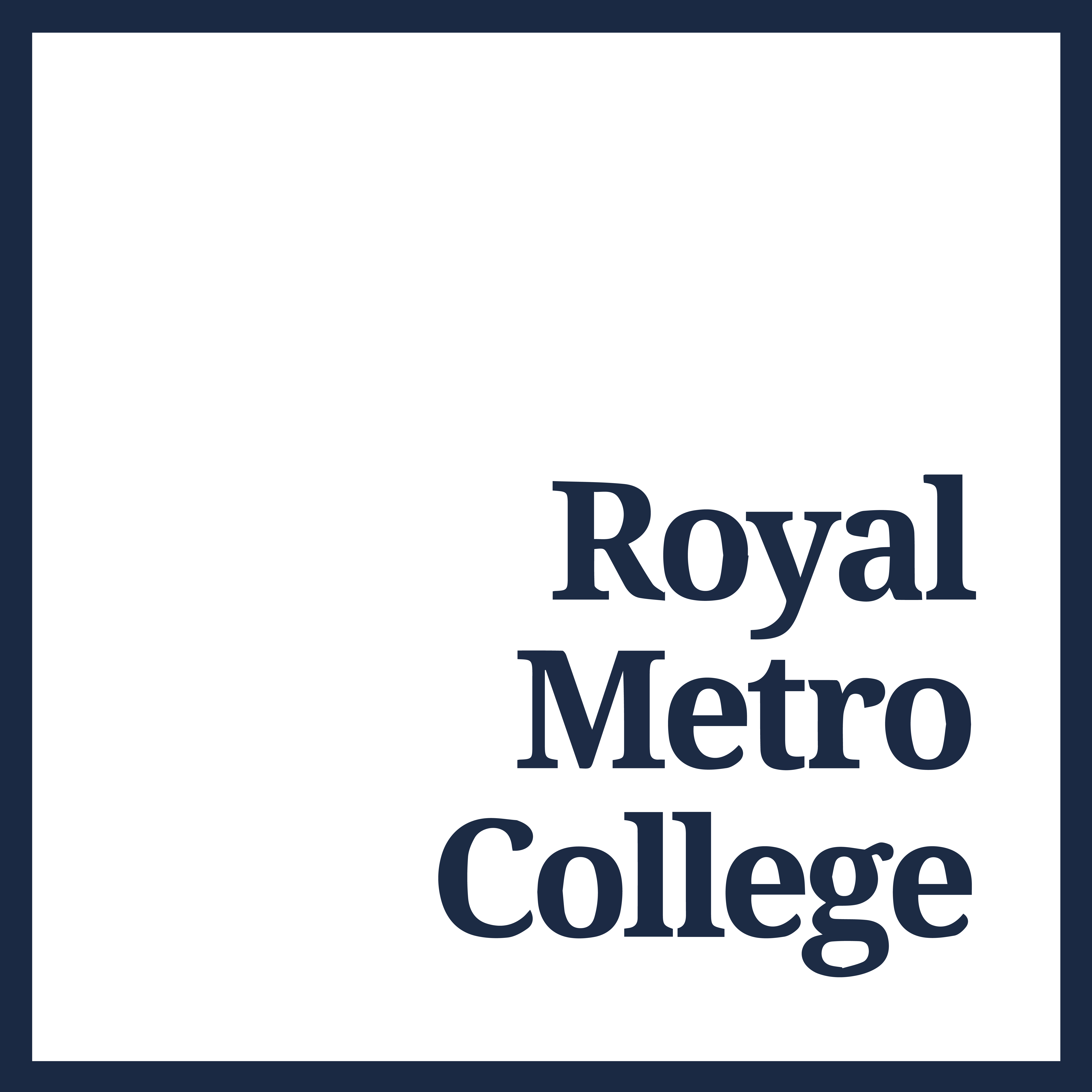Student Housing Options (Housing Assistance)
Royal Metro College does not provide on-campus housing. This page gathers practical guidance to help you find safe, suitable accommodation in the community and understand your rights as a renter in B.C.
Quick Contacts
- Student Services (general housing questions): studentservices@royalmetro.ca
- Admissions (offers, LOA, arrival timing): admissions@royalmetro.ca
- In Case of Emergencies: Call 911
1) Common Housing Types
- Homestay – Live with a local host family; often includes furnished room and some meals. Good for newcomers who want language practice and local support.
- Shared Apartment/House – Rent a bedroom and share kitchen, bathroom, and utilities with roommates. Usually the best value for cost.
- Private Suite / Basement Suite – A self-contained unit (often furnished), sometimes attached to a house.
- Studio / 1-Bedroom Apartment – Entire place to yourself; higher privacy and cost.
- Short-Term Rentals – Hotels, hostels, or furnished short stays for your first 2–4 weeks while you search long-term housing.
Tip: New students often choose short-term housing for 2–4 weeks first, then sign a long-term lease after viewing options in person.
2) Typical Costs (Examples Only – verify current market)
Actual prices vary by the neighbourhood, building age, furnishings, and season. Budget for rent, utilities, internet, and transit.
| Option | What it usually includes | Typical monthly range* |
| Shared room / bedroom in a shared unit | Furnished or partly furnished; shared kitchen/bath | $700–$1,200 |
| Private room in homestay | Furnished + some meals (varies by host) | $1,100–$1,600 |
| Basement / private suite | Furnished or unfurnished; separate entrance | $1,400–$1,900 |
| Studio / 1-bed apartment | Private kitchen/bath; higher privacy | $1,800–$2,600+ |
*Rates are based on recent market observations and may change; always confirm the current rate.
Other monthly costs to plan for:
- Utilities: $50–$150 (depending on usage & number of roommates)
- Internet: $40–$100 (plan/speed dependent)
- Transit: Check current Compass Card rates; many students use monthly passes.
- Renter’s insurance: ~$15–$30 (recommended)
3) Where and How to Search
- Homestay providers – Offer screening and matching; read what’s included (meals, wifi, laundry).
- Rental listings platforms – Filter by location, price, and housing type; bring a friend to viewings when possible.
- Local community boards & student groups – Useful for roommate shares; verify identity and listing details.
- Realtors / property managers – Some manage apartment buildings with standard applications.
Important: Royal Metro College does not place students in housing and has no affiliation with third-party platforms. Do your own due diligence before paying any fees.
4) Safety & Scam-Prevention Checklist
- Never send money or copies of ID before you’ve verified the landlord/agent and viewed the unit (in person or live video).
- Meet at the property and confirm the person has authority to rent it (ask for proof if unsure).
- Avoid cash; use traceable payments; get a receipt.
- Be cautious of “too good to be true” prices, pressure to decide immediately, or requests to wire money overseas.
- Trust your instincts—if something feels off, walk away and seek advice at studentservices@royalmetro.ca.
5) Understanding Leases & Deposits
- Read your lease fully before signing: rent amount, term (fixed vs. month-to-month), included utilities, rules on guests, subletting, etc.
- Damage/Security deposit – Typically up to half a month’s rent (varies by law); get a receipt.
- Condition inspection – Do a move-in inspection with photos/videos and keep copies of the report.
- Notice to end tenancy – Learn proper notice periods and penalties to avoid disputes.
6) Your Rights & Responsibilities (Tenancy Basics)
- Landlords must keep units safe and in good repair; tenants must pay rent on time and respect the unit/other tenants.
- If problems arise (repairs, entry notice, deposits, termination), keep everything in writing and document with photos and dates.
- If you cannot resolve an issue, contact Student Services for guidance and learn about B.C. tenancy rights and dispute options.
7) Roommates & House Rules
- Agree on house rules in writing: quiet hours, cleaning, guests, shared purchases, bill-splitting, and how to handle damages.
- Decide who sets up and pays for utilities & internet, and how reimbursements are tracked.
8) Move-In Essentials
- Utilities & Internet: Ask the landlord what’s included; if not included, set up accounts before move-in.
- Furniture: Many rentals are unfurnished—plan for a bed, desk, and kitchen basics.
- Renter’s Insurance: Protects your belongings and liability—strongly recommended.
9) Accessibility & Special Considerations
- If you require accessible housing (elevator, step-free entry, accessible bathroom), mention this early in your search.
- For shorter leases (co-op terms, practicum), look for flexible terms or furnished options.
10) Need Help?
- General housing questions or concerns: studentservices@royalmetro.ca
- Admissions/arrival timing, LOA: admissions@royalmetro.ca
- In Case of Emergencies: Call 911
Disclaimer: Royal Metro College provides this information for guidance only and does not endorse or control any third-party providers or listings. Students are responsible for their own housing decisions and contracts.

